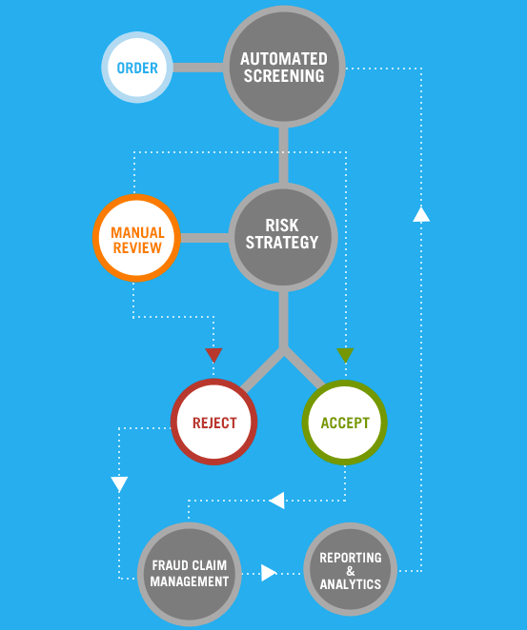
See why top ecommerce brands use Miva’s no-code platform to run
multiple stores, manage massive catalogs, and grow their revenue.
As an ecommerce business owner, it has never more critical to protect your business against fraud than now.
Ecommerce fraud cost retailers $3.5 billion dollars last year, according to CyberSource. Scam artists and fraudulent marketing schemes are popping up left and right, so it is important to stay on guard against these threats to your business.
By simply being aware about the potential scams that your business might encounter, you will be better prepared to identify if you are falling prey to a detrimental scam.
The Better Business Bureau listed some scams that that commonly target small businesses, such as:
“Small business fraud can come from internal threats, such as employee fraud, or from external full-time scammers,” said Alison Southwick, BBB spokesperson. “Because small business owners often lack the time and resources to fight fraud, they are a popular mark for any number of different scams.”
Small business owners can be especially susceptible to Affiliate Marketing Fraud.
Kogan.com’s Founder and CEO, Ruslan Kogan, recently wrote about his experience with affiliate networks in order to expand his digital marketing reach. After much investigative research, Kogan found out that using the affiliate marketing program was actually the same as if he were to hire a salesperson and pay them commission to sell to people in his checkout queue.
Kogan advises small businesses, “Be very careful when you sign up to affiliate networks. Do all your analysis. Profile the traffic, and then make an educated decision for yourself.”
The FBI put together the following steps in order to help small businesses avoid all kinds of fraud:

Source: CyberSource 2013
As an ecommerce grows, the level of fraud will grow accordingly. US ecommerce merchants using an automated fraud detection system will reject 2.9% of all orders, on average, according to CyberSource’s fraud studies. However, Ethoca found that 19% of those rejected orders were actually good. This is why it is important for small businesses to plan on both manual and automated fraud monitoring.
One of the most valuable ways ecommerce stores can increase their security is by choosing a secure payment gateway, such as Authorize.net. By doing so you will help protect your business from fraud.
Additionally, choosing an ecommerce platform that is SSL certified will secure all credit card information. Miva offers strong SSL certificates that are 128-bit or 256-bit capable to accommodate all security needs. It is also crucial that online storeowners ensure that their SSL certificates are up-to-date.
PCI-DSS Compliance (Payment Card Industry’s Data Security Standard) was developed by the PCO Security Standards Council and is required for all ecommerce sites. The goal of this standard is to protect the security of online transactions.
“Start with firewalls, an essential aspect in stopping attackers before they can breach your network and gain access to your critical information,” says Sarah Grayson, Senior Marketing Manager for the Web Security Group at McAfee. “Add extra layers of security to the website and applications such as contact forms, login boxes and search queries. These measures will ensure that your ecommerce environment is protected from application-level attacks like SQL (Structured Query Language) injections and cross-site scripting (XSS).”
Back to topNo worries, download the PDF version now and enjoy your reading later...
Download PDF Miva
Miva
Miva offers a flexible and adaptable ecommerce platform that evolves with businesses and allows them to drive sales, maximize average order value, cut overhead costs, and increase revenue. Miva has been helping businesses realize their ecommerce potential for over 20 years and empowering retail, wholesale, and direct-to-consumer sellers across all industries to transform their business through ecommerce.
Visit Website